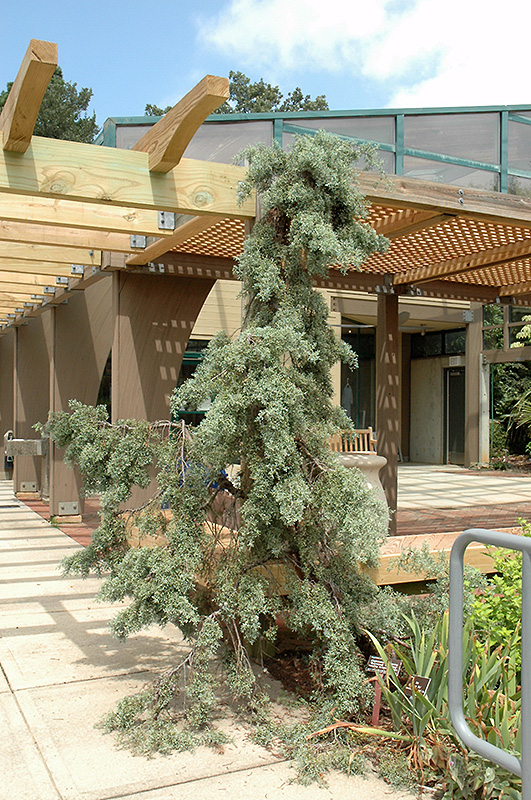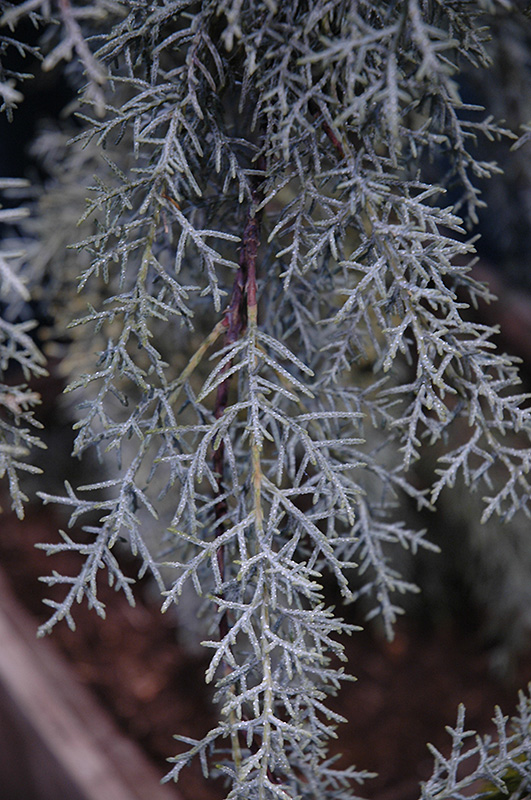Raywood's Weeping Arizona Cypress
Cupressus arizonica 'Raywood's Weeping'
Height: 25 feet
Spread: 8 feet
Sunlight:
![]()
Hardiness Zone: 6a
Other Names: Cupressus arizonica var. glabra
Description:
A shockingly narrow and upright small accent tree with a strongly weeping branching habit, foliage is wonderfully silver-blue; use as a solitary accent in the yard or a large garden, very hard to miss
Ornamental Features
Raywood's Weeping Arizona Cypress is primarily valued in the landscape for its rigidly columnar form. It has attractive silvery blue evergreen foliage. The threadlike sprays of foliage are highly ornamental and remain silvery blue throughout the winter.
Landscape Attributes
Raywood's Weeping Arizona Cypress is an open evergreen tree with a strong central leader and a narrowly upright and columnar growth habit. It lends an extremely fine and delicate texture to the landscape composition which can make it a great accent feature on this basis alone.
This is a relatively low maintenance tree, and should not require much pruning, except when necessary, such as to remove dieback. It has no significant negative characteristics.
Raywood's Weeping Arizona Cypress is recommended for the following landscape applications;
- Accent
- Vertical Accent
Planting & Growing
Raywood's Weeping Arizona Cypress will grow to be about 25 feet tall at maturity, with a spread of 8 feet. It has a low canopy with a typical clearance of 1 foot from the ground, and is suitable for planting under power lines. It grows at a slow rate, and under ideal conditions can be expected to live for 60 years or more.
This tree should only be grown in full sunlight. It prefers dry to average moisture levels with very well-drained soil, and will often die in standing water. It is considered to be drought-tolerant, and thus makes an ideal choice for xeriscaping or the moisture-conserving landscape. It is not particular as to soil pH, but grows best in sandy soils. It is somewhat tolerant of urban pollution. This is a selection of a native North American species.

